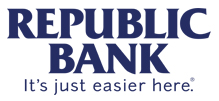
Eliminate the Hassle
Stop Reserves From Exceeding the FDIC-Insured Limit
By Elizabeth Kimbell / Published June 2019

Florida touts its share of sunshine, beaches, tourists, citrus…and homeowners associations. These associations, like their non-Florida equivalents, have many shared challenges, including reserves that exceed the $250,000 in FDIC (Federal Deposit Insurance Corporation) insurance coverage at a single bank in a single account.
Joe Patterson, VP, Treasury Management Officer at Republic Bank in Pinellas County, FL, describes the hassle of efforts made by homeowners association presidents to avoid this problem: opening and managing multiple accounts at multiple financial institutions with varying rates, consolidating numerous monthly statements, and dealing with multiple 1099s at tax time.
The FDIC is an independent agency of the United States government that protects against the loss of insured deposits if an FDIC-insured bank or savings association fails. According to its website, FDIC insurance is backed by the full faith and credit of the United States government. FDIC deposit insurance covers the depositors of a failed FDIC-insured depository institution dollar-for-dollar, principal plus any interest accrued or due to the depositor, through the date of default, up to at least $250,000.
So, what is a community with over $250,000 to do? Open multiple accounts? Rely on repurchase agreements or layered CDs? Be non-compliant? When HOAs don’t comply with the $250,000 limit, the homeowners association president and/or board members assume the liability in the event the FDIC closes the bank, according to Patterson.
Jessica Cross, Treasury Management Officer at Republic Bank in Tampa, FL, explains that historically HOAs have utilized two options, repurchase agreements and layered CDs, to avoid this situation. As it turns out, the Insured Cash Sweep (ICS) provides what sure seems like a tailor-made solution: multi-million-dollar FDIC protection on reserves exceeding $250,000. ICS is a perfect merger of the two alternatives because ICS offers the liquidity of Repurchase Agreement Sweeps and the competitive interest rates of layered CDs all while maintaining full FDIC coverage.
In Pinellas County, Patterson recently helped an association consolidate accounts and CDs held at multiple banks through ICS. “The situation was creating a HOA management headache,” he reports. “By bringing all the accounts together at one bank through the ICS service, the association is fully insured and now has one rate, one statement, one contact, one 1099.”
Through the ICS service, a homeowners association can access multi-million-dollar FDIC protection on savings deposits, secure large deposits while maintaining access to funds and earn interest on funds placed into money market deposit accounts. Cross points out, “ICS is an excellent cash management alternative to prime funds, as well as repurchase agreements and other traditional investment vehicles.”
Homeowners association managers, presidents, and board members enjoy peace of mind knowing ICS funds are eligible for multi-million-dollar FDIC insurance, protection backed by the full faith and credit of the United States government. Funds can be accessed through unlimited program deposits and up to six program withdrawals per month.
Also, interest is earned on ICS funds placed into money market deposit accounts. In addition, association members feel good knowing the full amount of funds placed through ICS can stay local to support lending opportunities that build a stronger community.
Members of the Pinellas County homeowners association Patterson helped rest assured knowing their money is always on deposit in regulated, FDIC-insured institutions that they can see (online). The ICS service allows managers, presidents, and board members to manage their communities more effectively.
It’s simple. Homeowners associations set up a checking account, sign the agreements, and deposit funds. It’s like picking the perfect orange and squeezing it.
For more information on Republic Bank, visit www.republicbank.com.
Member FDIC
Elizabeth Kimbell, MBA
Republic Bank
Elizabeth Kimbell, MBA, lives in Crestwood, KY, and is a full-time professor in the Department of Communication at University of Louisville. She’s been a Florida homeowner association member since 2014.




